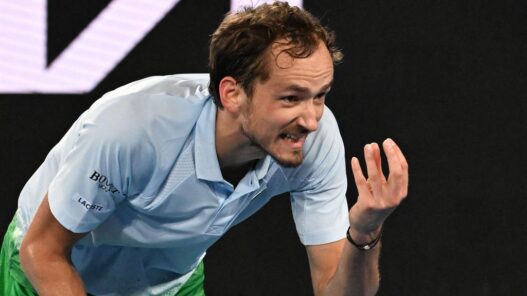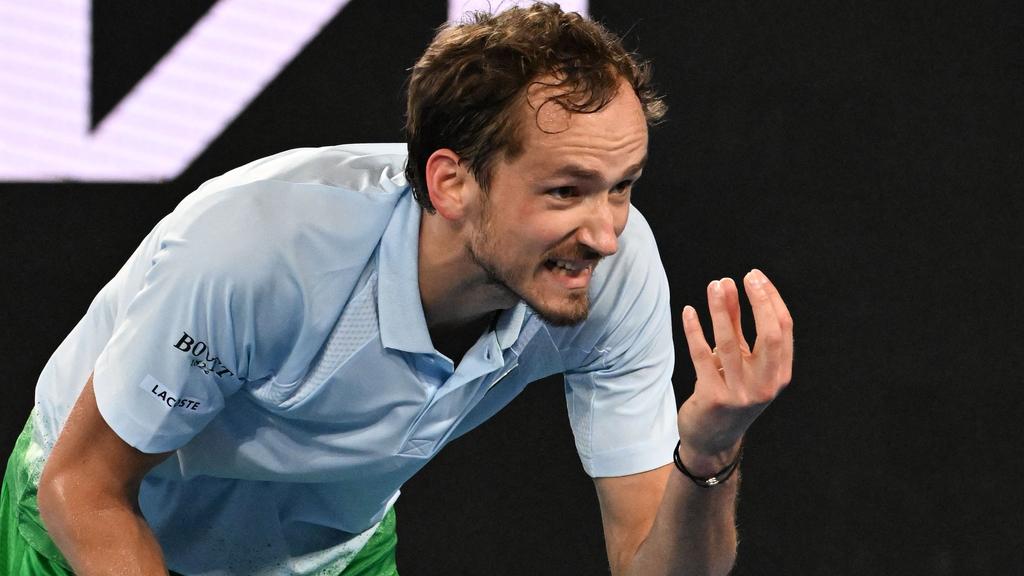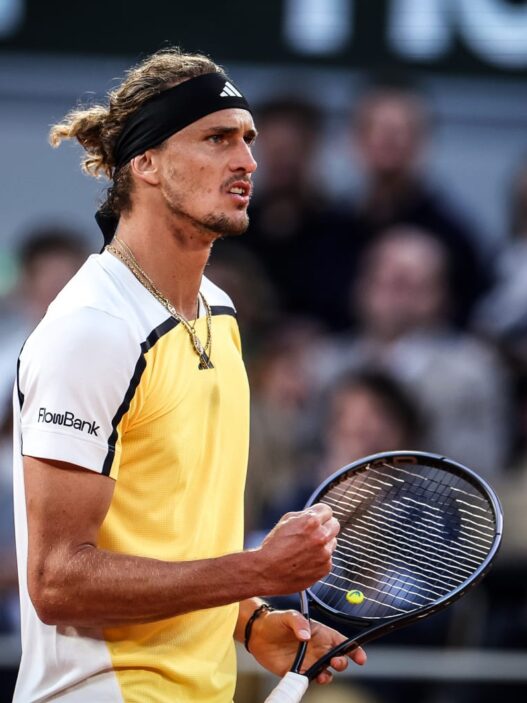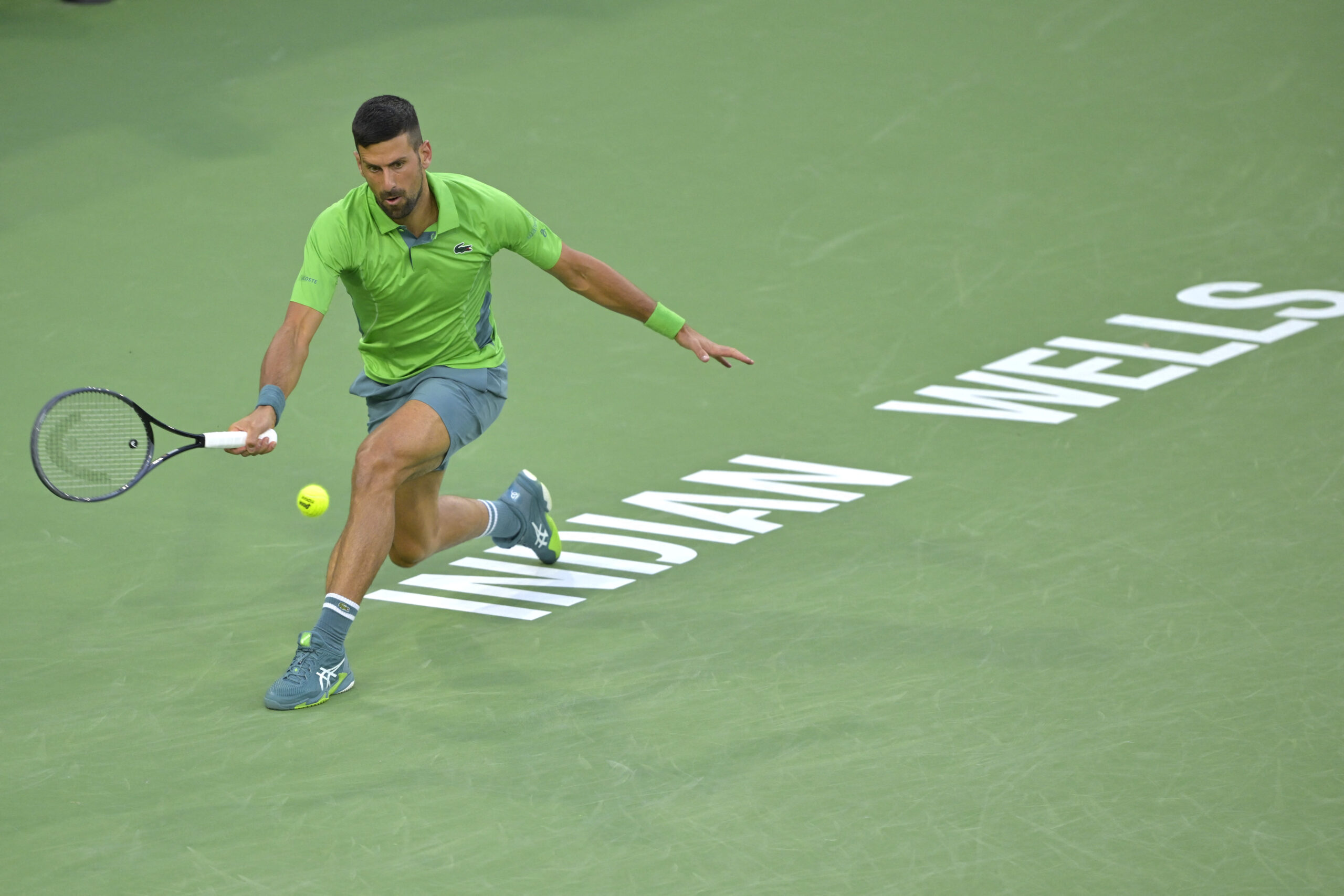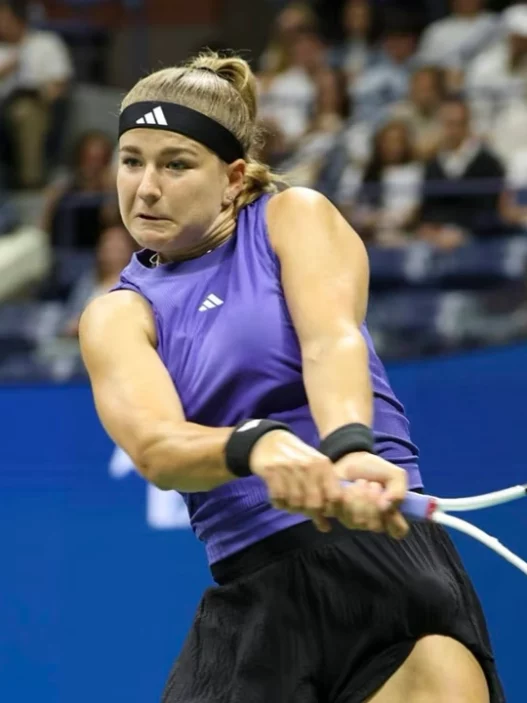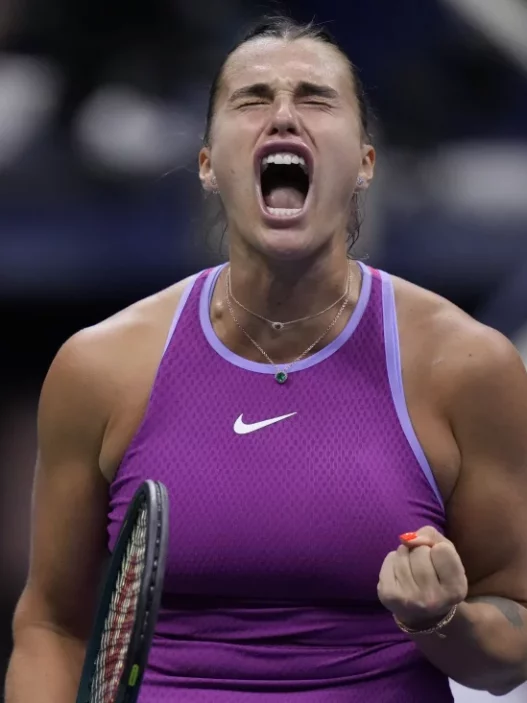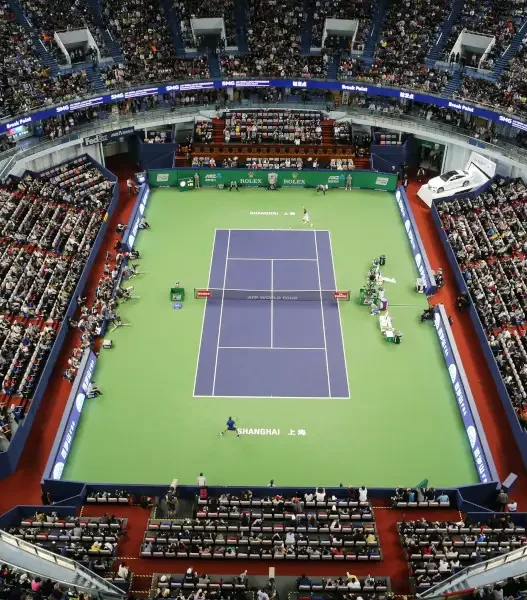Daniil Medvedev arrived in 2025 like a chess grandmaster, opening the season not with flair but with quiet confidence—until the position on the board began slipping. Mid-June finds him ranked 11, his record a modest 16–9, without a title, without momentum. He may still be Daniil Medvedev, the towering Russian whose backhand once shattered Novak Djokovic’s rhythm at Flushing Meadows in 2021—but so far this year, he’s lost that edge more often than he’s found it.
It began in Melbourne. At the Australian Open, Medvedev faced 19-year-old Learner Tien, ranked outside the top 200. What should have been routine turned into nearly five hours of suspense and heartbreak. Medvedev served for the match twice—and twice blanked. The final 10–8 on a fifth-set tiebreak didn’t just mark a stunning loss; it felt like the scoreboard unveiling cracks that had been forming quietly.
If the rust had been dismissed as rust, Rotterdam removed the doubt. Facing qualifier Mattia Bellucci, Medvedev faltered in late work again, a familiar script of strong start, crumbled finish. In Dubai, Tallon Griekspoor held serve when Medvedev held match points. It was in those tight spaces—when memory and timing matter most—that Medvedev began to fall apart.
Clay courts offered no reset. At Roland Garros he lost in round one to Cameron Norrie, once again serving for the match at 5–4 in the third. He tensed, he blinked, he faltered. He blamed it on inconsistency—but others saw something deeper: that foundational belief, the quiet iron that had made him Grand Slam champion, had grown brittle.
Then came Bosch. On grass, Medvedev has always looked like a character out of time—his game flat, his movement deliberate. He served through two tiebreak sets against Reilly Opelka without dropping serve, but fell in both tiebreaks. Again, his discipline held substance, but his edge was absent. That record—six break points held against, no conversion—felt emblematic of every week this season: strong, consistent, but failing to convert when it mattered most.
Against that backdrop, Medvedev has shown flashes of steel. In Halle, he reached the quarters, defeating Adrian Mannarino in straight sets, converting three break points and saving both he faced — a reminder that beneath the cracks, the man is still there.
But grass is historically his salvation, a place where his earlier titles were written in white-hot impact. Now, even his comfort feels purposive, as if earned rather than granted. The curveball is that Medvedev, for all his cerebral calm, is struggling with the tiny margins: tiebreaks, match points, break opportunities. These moments are measured in blink-and-miss, and his responses have changed.
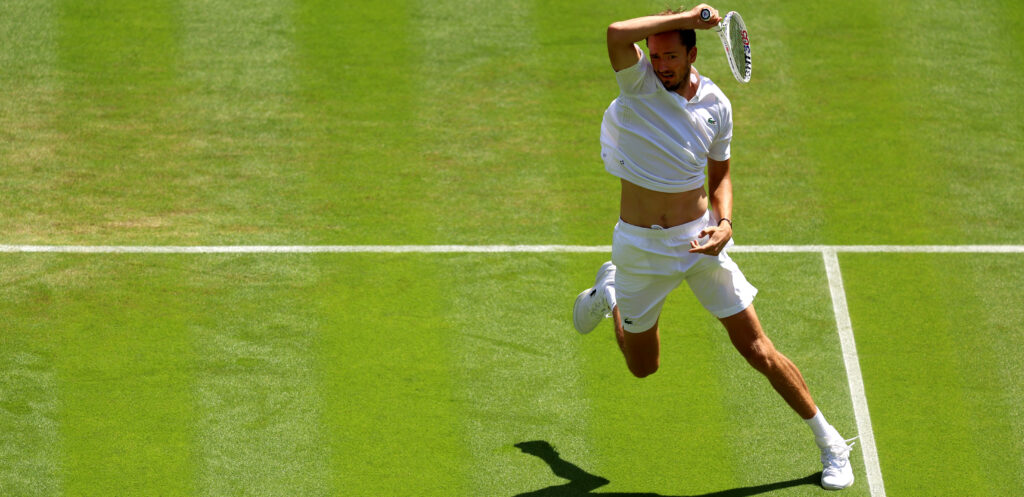
The sport itself has matured faster than Medvedev’s game. Players like Alcaraz, Sinner, Shelton aren’t just younger; they’re unafraid of the edge. They don’t view matches as puzzles to be solved—they view them as puzzles to be dismantled. And in that escalation, Medvedev’s once-consistent grid looks spliced: good for rally, shaky under pressure.
He’s aware of it. Mid-match in Paris, he changed strings. On the court, he once scorned such tweaks. Now, he admits the twitch of his instincts is too slow, the shoulder too sore, the swing too hesitant. The former US Open champion has faced defeat with quiet humility, but also visible irritation—an anger that seems aimed inward now, at the unraveling of a machine he once operated effortlessly.
Is age to blame? Possibly. At 29, he’s at a crossroads. Not old, but old enough to feel the season’s grind. But those who study tennis see more than wear and tear. They see a player losing command, not just match after match, but of himself.
Still, he has his voice. After the loss in Rotterdam, he laughed off retirement rumors: “I’m still making a lot of money, and I still love competing.” It wasn’t defiance. It was exhaustion—a man trying to recruit certainty in an unstable life. Medvedev knows what the margins once felt like. He knows he built his career in those margins. Now he has to find them again.
This summer’s path is steep. Wimbledon looms; a surface that once suited him still might. But this summer isn’t about winning the trophy—it’s about finding consistency, rediscovering conviction. His core is tactical and resilient—but in a world built on relentless firepower, he’s coming to feel like an artifact: deeper, richer, but missing velocity.
Daniil Medvedev isn’t disappearing. He’s stumbling through a season that his skill should carry—but his mind now falters where it once blazed. And as his ranking slides, the glare turns inward. For tennis fans, the question isn’t whether he’ll return to top form—it’s whether he can find what he once carried so effortlessly: belief in himself when everything else seems to fall away.
And so the fall of Medvedev isn’t a crisis —it’s a season. Unfolding. As much about regret as reinvention, doubt as possibility. The next chapter could begin in July or September or next year. Or it may not. But one thing is clear: this year, Medvedev is learning how to lose. And for a player built on narrow wins, discovering how to handle loss might prove harder than anything he’s ever faced.











